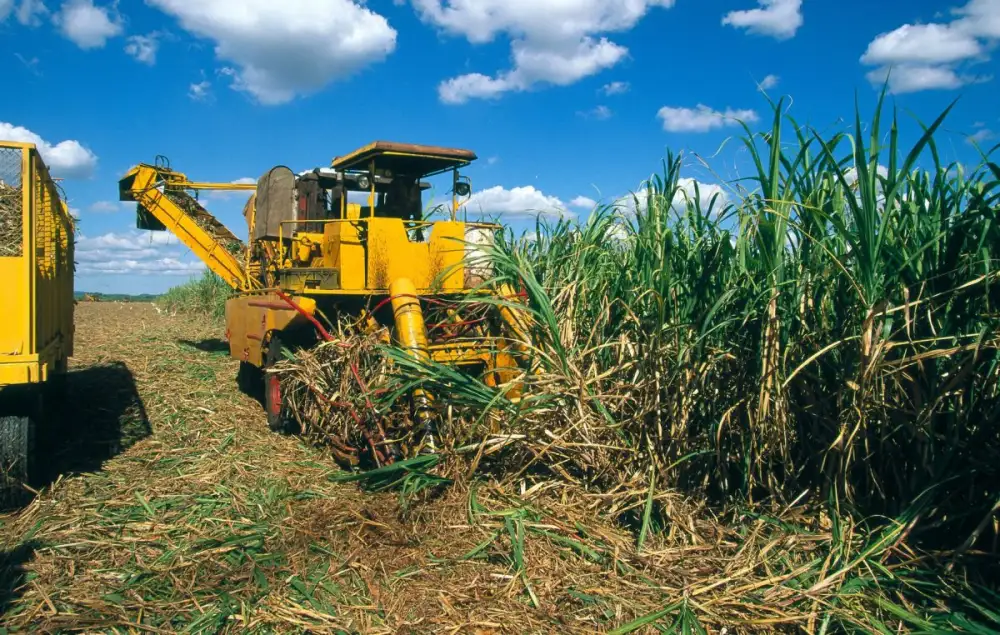
Sugarcane is one of Thailand's most significant economic crops. Serving not only as the primary raw material for the sugar industry, it is also deeply integrated with a wide range of downstream industries, ranging from food and beverages to pharmaceuticals and energy, as well as upstream sectors such as agricultural services and fertilizer production. The cultivation of sugarcane therefore represents a cornerstone of national income and economic growth, serving as a critical source of livelihood for farmers across the country.Thailand remains the world's second-largest sugar exporter after Brazil.

However, when measured by yield per hectare, the country continues to trail its major competitors. Farmers continue to face structural challenges, including soil degradation, pests and diseases, high production costs, labor shortages, and the accelerating impacts of climate change. At the same time, global markets are increasingly prioritizing food safety and sustainable production. These dynamics create a pivotal opportunity for Thai sugarcane growers to advance cultivation practices through modern innovations and technologies, particularly the use of biostimulant products and integrated farm management systems. Strengthening farmer capabilities and building collaborative networks within the value chain will also be essential. Together, these solutions can raise productivity and improve sugar quality, enabling Thailand not only to preserve its global standing but also to position itself as a future leader in the world sugar export market.Strengthening Thailand's sugarcane and sugar industry for global competitiveness must begin upstream. This includes selecting varieties that are well-suited to local conditions, improving efficiency in planting and crop management, and optimizing harvesting practices.
To achieve these objectives, sugarcane farmers must focus on three critical areas: increasing average yield per hectare, extending ratoon longevity, and reducing production costs while simultaneously creating additional income streams.An essential strategy for advancing sugarcane cultivation is the application of biological products and nutritional supplements. These innovations restore soil health, strengthen crop vigor, and enhance both yield and quality. At the same time, the adoption of Regenerative Agriculture practices is transforming conventional sugarcane farming into sustainable production systems that optimize water and input use, mitigate soil degradation, and build crop resilience to the impacts of climate change.As a global leader in agricultural innovation and technology, Syngenta provides comprehensive, end-to-end solutions for sugarcane cultivation, covering every stage from planting to harvest. Among its advanced biostimulant and crop nutrition offerings is Quantis, a sugarcane- and yeast-derived biostimulant designed to help plants withstand heat and drought stress by activating targeted metabolic pathways. Through this mechanism, Quantis mitigates the effects of environmental stress, stabilizes yields, and delivers essential nutrients such as potassium and calcium to promote vigorous growth, ultimately enhancing both productivity and crop quality. Complementing this is Calaris, a highly effective crop protection product that controls both narrowleaf and broadleaf weeds. By improving weed management and reducing competition for nutrients, Calaris supports stronger crop performance and contributes to more efficient, sustainable production systems.
Mr. Pitsanu Apirajkamol, Marketing Director of Syngenta Crop Protection Co., Ltd., stated "Sugarcane cultivation today can no longer be defined solely by output. It must also demonstrate sustainability. At every stage of cultivation, the careful selection of appropriate products is critical, whether biostimulants that strengthen plant growth or biologicals that restore soil health and improve resilience. When applied correctly, these tools enable farmers to raise yields while preserving sugarcane quality over the long term. The effective use of biostimulants, for example, can enhance tillering, promote thicker stalks, improve photosynthetic efficiency, and increase drought tolerance. Providing farmers with the right knowledge and training is therefore essential. Syngenta is committed to supporting growers through on-farm demonstrations, structured training, and ongoing follow-up to ensure that farmers achieve measurable and lasting results."
He added "At Syngenta, supporting farmers is not limited to product delivery. Equipping growers with the knowledge and skills for sustainable sugarcane management is fundamental to our purpose. Our solutions are developed to integrate seamlessly into every stage of cultivation, ensuring resilient crops, optimized yields, and consistently high quality. Early training and technical guidance enable farmers to adapt with confidence, realize tangible results, and secure lasting success."Over the next three to five years, biostimulants will assume an increasingly pivotal role in Thai sugarcane cultivation, driving measurable gains in both yield and quality. Syngenta is committed to working alongside farmers in every growing season to ensure that sugarcane is recognized not only as an agricultural crop but also as a strategic foundation for Thailand's economy and environment. Adopting systematic approaches to sugarcane management enhances productivity and quality, while the targeted use of biostimulants strengthens plant vigor, improves resilience against pests, diseases, and climate variability, reduces production costs, and elevates cultivation standards. With improved yields and higher-quality cane, farmers can secure stable livelihoods while contributing to stronger national revenues. Investing in high-quality sugarcane production through biological solutions and agricultural innovation is not a short-term response. It represents a long-term commitment to building a secure, resilient, and sustainable future for farmers and for Thailand as a whole.